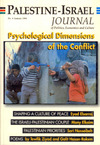To the memory of Amitai
What did Eve know when Adam knew her.
The approaching death of her son
and hers after him and the death of all generations although she never heard that "thou-shalt-surely-die"
was uttered just before "It-is-not-good-that-the-man-should
¬be-alone."
*
What was once Sodom, the desert at her side
She starts to absorb stone,
The bitter dryness of salt.
She's running out of motherhood, cut off from the
Umbilical cord between her and the Mediterranean.
Perhaps her sons are there, in the upheaval.
Her daughters flee with the man Lot
Into the womb of the earth.
At the ceremony on the beach
Of all the wedding customs
Only drunkenness remains.
Even the Music
The whole story about Orpheus and Eurydice was not told
But to say there is no return from there,
Really.
Even the music
Does not have the power to force the prey from Hades's hand.
Really.
Is it important to know how
The power of longing will fail?
But that is the story about Orpheus and Eurydice.
Really.
*
Anger is the other
side of love, a simple thing
that I was taught by a man, wise
and silent, who is very sad now
because they washed his dead wife
and wrapped her golden rings
in gauze during the washing
and forgot to put them back, and they also
forgot to put back her soul
and that is why he is now
abandoned most by the golden ring
of his life, silent, wild
First poem from Alpayim 7, 1994; second from Hamilah Haktuvah, winter 1990/1991; third from Davar, May 3, 1991; fourth from Lot's Wife, 1989, a collection of poems by Calit Hasan-Rokem.
Poems translated from the Hebrew by Calit Hasan-Rokem and Kathryn Hellerstein <

